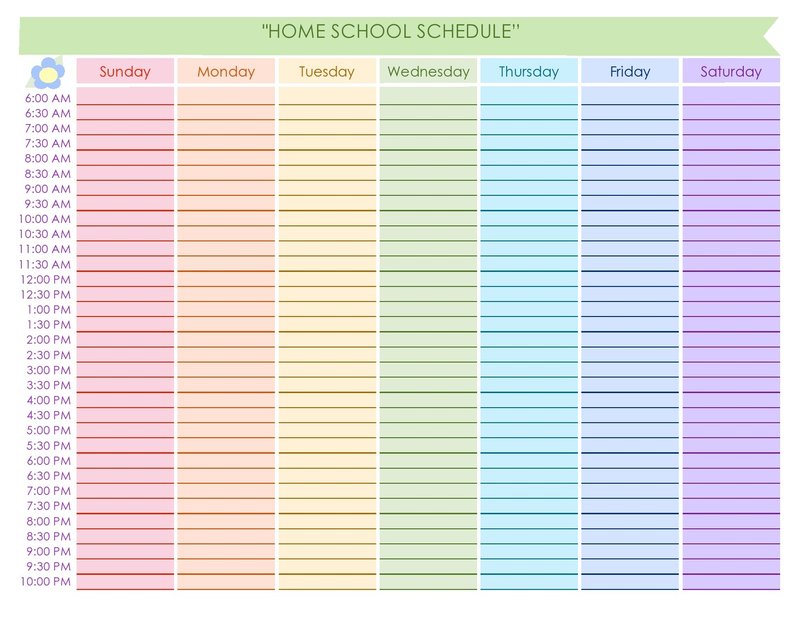· Education · 9 min read
Ultimate Guide to Choosing the Best Christian Homeschool Curriculum: Reviews, Grade Levels, and Biblical Teaching
Discover the best Christian homeschooling curriculum options for various grade levels, teaching multiple subjects with a biblical worldview. Explore reviews and tips for finding faith-based learning materials in this comprehensive guide.

Ultimate Guide to Choosing the Best Christian Homeschool Curriculum: Reviews, Grade Levels, and Biblical Teaching
Homeschooling can be an excellent choice for Christian parents who want to provide their children with a faith-based education. However, with so many curriculum options available, it can be overwhelming to choose the best one for your family. In this ultimate guide, we will explore key questions about choosing the best Christian homeschool curriculum, including reviews, grade levels, and biblical teaching.
1. Why is it important to choose a Christian homeschool curriculum?
Choosing a Christian homeschool curriculum is important because it allows parents to integrate their faith into their children’s education. It provides an opportunity to teach biblical values, principles, and worldview throughout various subjects. By selecting a curriculum with a strong biblical foundation, parents can ensure that their children receive an education that aligns with their religious beliefs.
According to a study conducted by the National Home Education Research Institute, religious or moral reasons are one of the top motivations for parents choosing homeschooling. A Christian homeschool curriculum helps parents instill their religious values in their children while providing them with a quality education.
Source: “The Top Christian Homeschool Programs”
2. What are some popular Christian homeschool curriculum options?
There are several popular Christian homeschool curriculum options available today. Here are some of the top picks:
BJU Press: BJU Press offers an open-and-go curriculum that prioritizes academic rigor, critical thinking, and a biblical worldview. It provides colorful physical workbooks and online video lessons that students can do themselves.
Memoria Press: Memoria Press offers a comprehensive and accessible classical Christian curriculum. They emphasize liberal arts and the great works of Western civilization.
Abeka: Abeka Homeschool Academy provides homeschooling curriculum for grades K-12. They use textbooks and video lessons with a spiral approach to learning.
Alpha Omega Publications: Alpha Omega offers various Christian curriculum styles, including workbooks and online options. Their curriculum is designed with homeschool families in mind and incorporates scripture and Bible lessons throughout.
Source: “10 TOP Christian Homeschool Curriculum PICKS Reviewed (2024)“
3. How do I find faith-based learning materials for homeschooling?
Finding faith-based learning materials for homeschooling can be a challenging task, but there are several resources available to help you. Here are some tips to consider:
Research Christian Curriculum Providers: Look for reputable Christian curriculum providers that offer materials aligned with your beliefs. Visit their websites, read reviews, and explore sample materials to ensure they meet your educational and spiritual requirements.
Seek Recommendations: Reach out to other homeschooling families or join online communities dedicated to Christian homeschooling. Ask for recommendations and insights into the best faith-based learning materials they have used.
Attend Homeschool Conventions: Homeschool conventions often have vendors specializing in faith-based curriculum. Attending these conventions can provide valuable opportunities to browse and compare different materials.
Utilize Online Resources: Explore websites, blogs, and forums dedicated to Christian homeschooling. These platforms often provide detailed reviews, suggestions, and even free resources.
Remember, finding faith-based learning materials requires discernment and alignment with your family’s specific beliefs. Take the time to evaluate each resource and choose the ones that best match your educational and spiritual goals.
Source: “The 14 Best Christian Homeschool Programs & Curriculum Options”
4. How do I choose a Christian homeschool curriculum for different grade levels?
Choosing a Christian homeschool curriculum for different grade levels requires careful consideration of your child’s academic needs, learning style, and spiritual growth. Here are some factors to keep in mind:
Academic Rigor: Look for a curriculum that offers a solid academic foundation aligned with state standards or your personal educational goals.
Biblical Integration: Ensure the curriculum incorporates biblical teachings, values, and worldview throughout various subjects. Look for explicit references to scripture and faith-based discussions.
Learning Style: Consider your child’s learning style and preferences. Some children thrive with hands-on activities, while others prefer reading and writing. Choose a curriculum that caters to their individual needs.
Flexibility: Determine whether you prefer a structured or flexible curriculum. Some curricula provide detailed lesson plans, while others offer more freedom for customization.
Grade-Level Suitability: Check if the curriculum is designed specifically for your child’s grade level. Consider any additional materials or resources needed to supplement the curriculum.
Remember, every child is unique, so it’s essential to choose a Christian homeschool curriculum that suits your child’s individual needs and supports their spiritual growth.
Source: “TOP 10 Best CHRISTIAN Homeschool Curriculum Options [2024]“
5. How can I homeschool with a biblical worldview?
Homeschooling with a biblical worldview involves integrating biblical teachings, values, and principles into all aspects of your child’s education. Here are some practical ways to accomplish this:
Select a Bible-Centered Curriculum: Choose a Christian homeschool curriculum that explicitly incorporates scripture and faith-based discussions into various subjects.
Devotional Time: Start each day with a devotional time where you read and discuss Bible passages together as a family. Encourage your children to ask questions and share their thoughts.
Teach Critical Thinking from a Biblical Perspective: Integrate critical thinking skills into lessons by discussing real-life scenarios from a biblical worldview. Encourage your children to analyze situations and make decisions based on their understanding of scripture.
Encourage Biblical Application: Help your children apply biblical principles in their daily lives by discussing how their faith should influence their actions and interactions with others.
Engage in Service Opportunities: Involve your children in community service or volunteer work that aligns with biblical values such as helping the needy or serving others.
By intentionally incorporating a biblical worldview into your homeschooling, you can provide your children with an education that goes beyond academics and prepares them to live out their faith in the world.
Source: “Christian Homeschool Curriculum”
6. How can I effectively teach multiple subjects at home?
Teaching multiple subjects at home can be challenging, but with careful planning and organization, it can also be rewarding. Here are some strategies to help you effectively teach multiple subjects:
Develop a Schedule: Create a daily or weekly schedule that outlines when each subject will be taught. Consider your child’s attention span and energy levels when planning the order of subjects.
Utilize Multi-Subject Resources: Look for curriculum options that integrate multiple subjects into one lesson or unit. This approach saves time and allows for interconnected learning.
Use Cross-Curricular Activities: Incorporate activities that connect different subjects together. For example, reading a historical novel can be an opportunity to discuss history, literature, and even writing skills.
Group Subjects by Theme: Organize subjects around a central theme or topic to make connections between different disciplines. This approach helps children see how knowledge is interconnected.
Take Advantage of Online Resources: Use online educational platforms and resources that offer comprehensive curriculum options for different subjects. These resources often provide lesson plans, worksheets, and assessments.
Remember, teaching multiple subjects requires flexibility and adaptability. Find a balance between structured lessons and incorporating child-led interests to foster engagement and enthusiasm for learning.
Source: “The Best Christian Homeschool Curriculum Programs in 2024”
7. How can I evaluate the effectiveness of a Christian homeschool curriculum?
Evaluating the effectiveness of a Christian homeschool curriculum is crucial to ensure your child’s academic progress and spiritual growth. Here are some ways you can evaluate a curriculum’s effectiveness:
Assess Academic Progress: Regularly assess your child’s academic progress through quizzes, tests, and assignments aligned with the curriculum. Observe if they are mastering the core concepts and skills.
Seek Feedback from Your Child: Engage in open conversations with your child about their learning experience. Ask for their input on the curriculum, how it aligns with their interests, and if they feel challenged or supported.
Consider Alignment with Goals: Evaluate whether the curriculum aligns with your educational goals and objectives. Assess if it provides the necessary resources, materials, and support to meet your child’s needs.
Monitor Spiritual Growth: Pay attention to how the curriculum nurtures your child’s spiritual growth. Are they developing a deeper understanding of biblical principles and applying them in their daily lives?
Seek Recommendations: Reach out to other homeschooling parents or join online communities to gather feedback on the curriculum you are considering. Ask about their experiences and whether they found the curriculum effective.
Remember, evaluating a curriculum’s effectiveness is an ongoing process. Be prepared to make adjustments or switch to a different curriculum if you find that it is not meeting your child’s needs or aligning with your educational goals.
Source: “Online Christian Homeschool Programs: The Top 15”
8. How can I balance faith-based teaching with academic rigor in a Christian homeschool curriculum?
Balancing faith-based teaching with academic rigor is essential to provide a comprehensive education for your child. Here’s how you can achieve this balance:
Prioritize Biblical Integration: Choose a curriculum that explicitly incorporates biblical teachings while maintaining academic rigor. Look for materials that present a biblical worldview within each subject without compromising intellectual development.
Set Clear Educational Goals: Define specific educational goals that encompass both academic achievement and spiritual growth. Align your lesson plans and activities to ensure a balance between rigorous academics and faith-based instruction.
Foster Critical Thinking Skills: Encourage critical thinking skills from a Christian perspective by engaging your child in discussions about faith, morality, and ethics. Help them develop a well-rounded worldview that integrates both intellectual and spiritual understanding.
Utilize High-Quality Resources: Select high-quality resources that support rigorous academic standards while incorporating biblical teachings. Look for materials that encourage deep thinking, analysis, and application of knowledge.
Emphasize Character Development: Integrate character development into your curriculum by focusing on virtues such as love, kindness, honesty, and integrity. Teach your child to apply these principles in academic tasks and everyday life.
Remember, balancing faith-based teaching with academic rigor is an ongoing process that requires intentional planning and reflection. It is possible to provide a well-rounded education that prepares your child academically and spiritually.
Source: “Best Christian Homeschool Curriculum: Top Picks for Faith-Focused Learning”
Homeschooling with a Christian curriculum provides an opportunity to instill biblical values, integrate faith into daily lessons, and create a strong foundation for your child’s spiritual growth. By carefully selecting a curriculum that aligns with your family’s beliefs, considering grade-level suitability, and effectively teaching multiple subjects, you can provide your child with a well-rounded education that nurtures their academic and spiritual development. Remember to evaluate the effectiveness of the curriculum regularly and maintain a balance between faith-based instruction and academic rigor.



